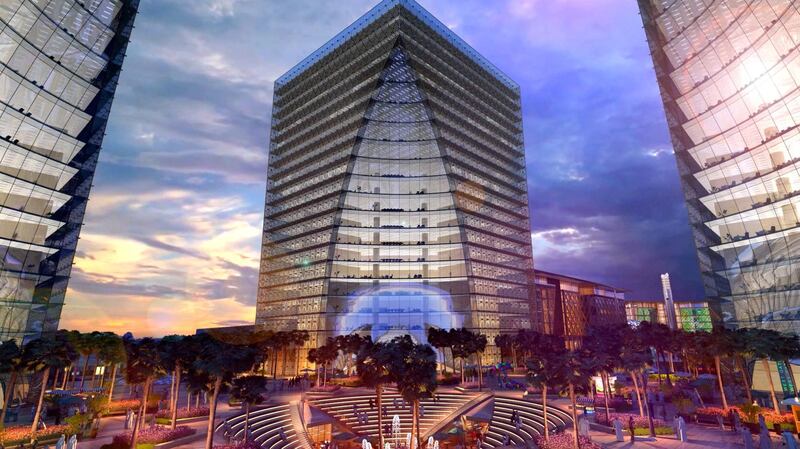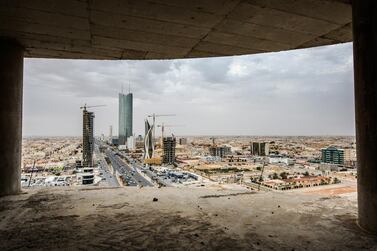Raza, the real estate management and development arm of Saudi Arabia’s Public Pension Agency, may seek to go public or pursue a private stake sale as part of plans to become an independent entity in the medium term - subject to achieving minimum 5 per cent annual revenue growth in the years to 2024, its chief executive said.
"The idea is that Raza doesn't just have to be a company doing business for the PPA," Waleed Al Eisa told The National in an interview. "From day one, the ambition has been that, after some time, the company could do an initial public offering, or sell part of its business, if the environment is right."
Such an event is a longer-term goal that would require Raza to meet its target of doubling its assets under management from the current 13 billion Saudi riyals (Dh12.73bn), and achieving a minimum of 5 to 10 per cent annual revenue growth over the years by 2024, Mr Aleisa added.
Raza is the real estate management arm of Al Ra'idah Investment Company (RIC), which was established by royal decree in 2007 under the Public Pension Agency of Saudi Arabia. Originally Al Ra’idah, Raza was re-branded and renamed this month, with a fresh objective to become the kingdom’s biggest community landlord by 2020.
It manages approximately two million square metres of office, mixed-use and community real estate across Riyadh, Jeddah and Dammam, and its portfolio comprises 4,500 residential units, around 500,000 sqm of office space and 50,000 sqm of retail – some of which was built or acquired by the PPA before Al Ra’idah was created.
Projects under development are the Digital City mixed-use scheme in Riyadh, the second phase of which is due to complete by the end of this year, comprising 2,250 residential units, according to Mr Aleisa. Raza is also building the second phase of the Jeddah Obhur mixed-use community, comprising 2,550 homes scheduled for handover this year.
RIC is in talks with potential investors to unlock some of the financing required to develop further parcels of land. At least two discussions are in the “very late stage” and if deals are signed, Raza would work with RIC to draw up proposals for new projects.
Raza’s growth strategy is in line with the kingdom’s plans to raise ownership of homes to 52 per cent of citizens from around 47 per cent, and boost the contribution of real estate mortgage financing to non-oil gross domestic product to 15 per cent from 8 per cent, as part of its Vision 2030 economic diversification agenda.
While lower oil prices in recent years have dented the Middle East’s largest oil exporting economy and increased demand for affordable housing, the kingdom's GDP growth is accelerating, and Raza is targeting an emerging segment of ambitious millennials in the mid-to-higher income bracket.
“Millennial Saudis are returning home after studying overseas, and entering the workforce, while at the same time young professional couples have higher combined incomes because more females are working. This is where we believe future demand will come from,” the chief executive said.
Young Saudis also have different preferences for where they want to live than older, more traditional generations. Instead of large villas in quieter areas away from shops and other amenities, they are happy to take smaller units in lively, mixed-use communities, he said.
As well as real estate development management, Raza’s other key focus is asset management, of both its own portfolio and that of third parties such as corporates. It is in talks with a prospective joint venture partner at present – an international firm – that would provide high quality facilities management services across the portfolio. Mr Aleisa hopes for a deal this year.
“We are open to forming joint ventures and other types of partnership to improve service quality and expand our work. Our focus right now is on creating new relationships,” he said.







